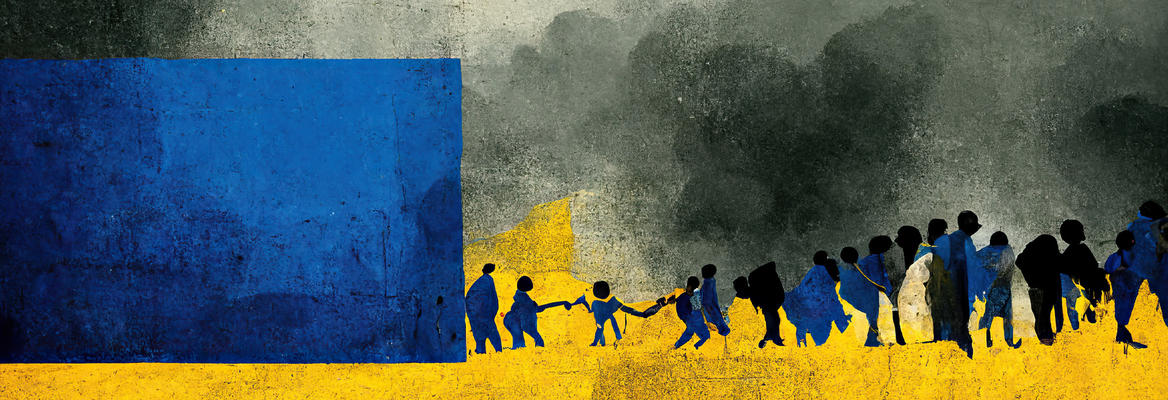With the war in Ukraine evolving into a protracted ground-based war of attrition, the true origins of the conflict remain contested. Undoubtedly Putin's will was the defining factor, but what motivated that will? And does the Russian imperial spirit have a deeper origin? Lasha Tchantouridzé argues that the current conflict is a result of an unresolved Russian chauvinism that once provoked fear in the hearts of Soviet leadership.
The war in Ukraine serves as an arena where two major unresolved problems of the Russian Revolution of 1917 have come to the forefront. One can be described as the challenge of establishing Russian statehood. The other was known to the Russian revolutionaries as the threat of “great Russian chauvinism.” These two problems were critical for the Russian Marxist-Leninists as they were fighting not only the supporters of the ancient regime but also trying to define statehood for the new communist nation. While many commentators have attributed the invasion of Ukraine to Putin’s imperial tsarist ambitions, this drive comes from a form of Russian nationalism the revolution tried, and failed, to purge.
In his Ukraine invasion speech, President Putin delivered an hour-long example of what Lenin and his followers called “great Russian chauvinism” – an extreme imperial overreach and expansion of Russian power at the expense of smaller nations. Lenin, Bukharin, and Trotsky, among others, believed that great Russian chauvinism was the biggest internal threat to the revolution. From 1921 to 1930, Stalin emphasized the dangers of “great Russian chauvinism” in almost every major speech. Stalin believed the number one objective of the Communist Party of the Soviet Union was “a decisive struggle with the remnants of great Russian chauvinism.”
___
In his Ukraine invasion speech, President Putin delivered an hour-long example of what Lenin and his followers called “great Russian chauvinism” – an extreme imperial overreach and expansion of Russian power at the expense of smaller nations.
___
It is not unusual for revolutionary problems to remain unresolved for decades if not generations, after the violent uprising and overthrow of the previous regime are accomplished successfully. The question of the Russian state, and closely linked with it is that of the Russian nation. Before the October Revolution, Lenin and his supporters firmly separated “state” from “nation” in their theoretical reasoning. In his State and Revolution, Lenin supposed the old state was to be replaced by something called the “dictatorship of the proletariat” and organized as “democratic centralism.” At the same time, the nation was expected to be liberated from the clutches of the exploitative state and organized into a new unity. What this new “unity” was supposed to be was never defined before the revolution, during the brutal civil war and after the destruction of millions of people that followed it. Eventually, Joseph Stalin, the People’s Commissar of Nationalities, was tasked to settle the question of nations in the Soviet state.





















Join the conversation